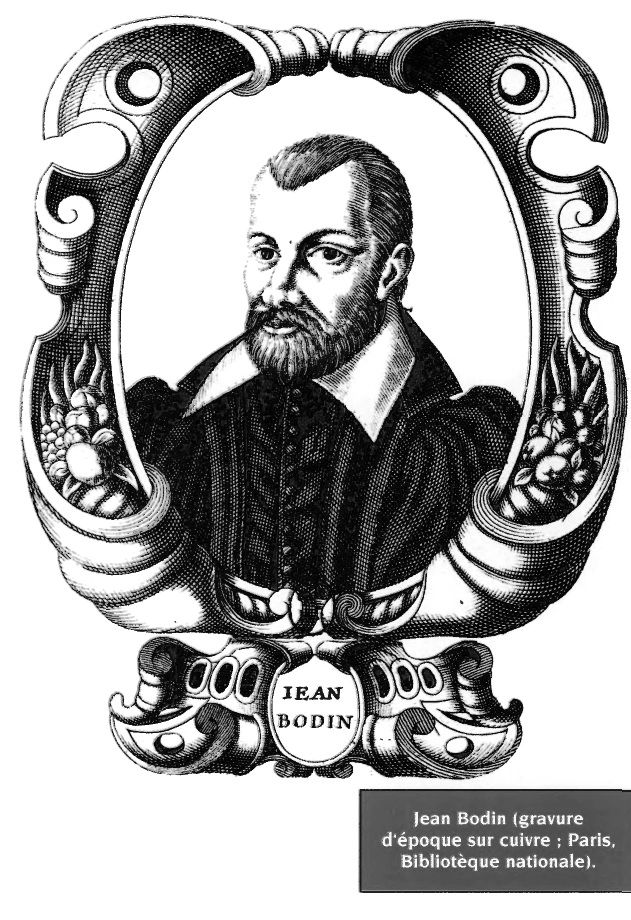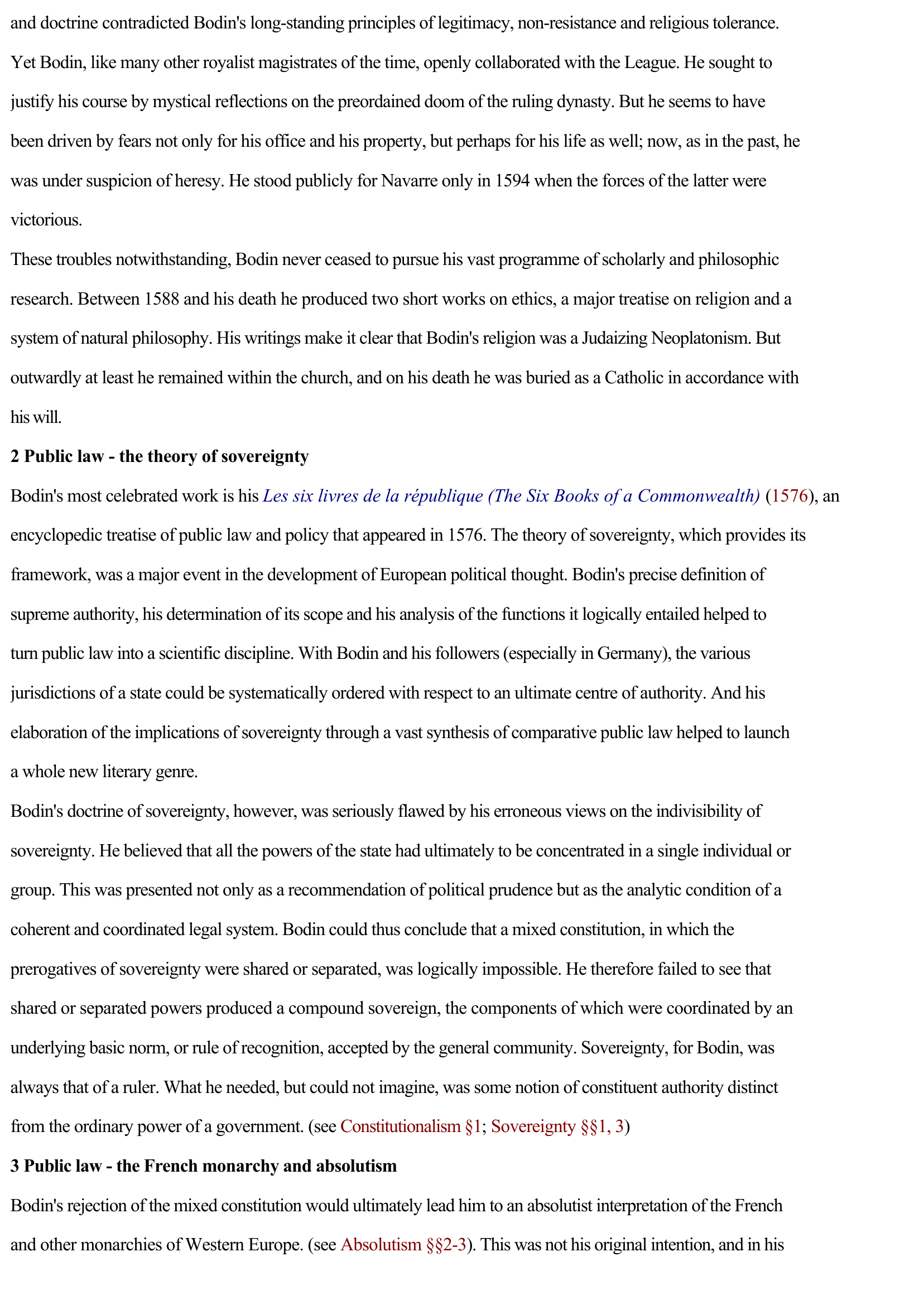Bodin, Jean
Publié le 22/02/2012

Extrait du document


«
and doctrine contradicted Bodin's long-standing principles of legitimacy, non-resistance and religious tolerance.
Yet Bodin, like many other royalist magistrates of the time, openly collaborated with the League.
He sought to
justify his course by mystical reflections on the preordained doom of the ruling dynasty.
But he seems to have
been driven by fears not only for his office and his property, but perhaps for his life as well; now, as in the past, he
was under suspicion of heresy.
He stood publicly for Navarre only in 1594 when the forces of the latter were
victorious.
These troubles notwithstanding, Bodin never ceased to pursue his vast programme of scholarly and philosophic
research.
Between 1588 and his death he produced two short works on ethics, a major treatise on religion and a
system of natural philosophy.
His writings make it clear that Bodin's religion was a Judaizing Neoplatonism.
But
outwardly at least he remained within the church, and on his death he was buried as a Catholic in accordance with
his will.
2 Public law - the theory of sovereignty
Bodin's most celebrated work is his Les six livres de la république (The Six Books of a Commonwealth) (1576 ), an
encyclopedic treatise of public law and policy that appeared in 1576.
The theory of sovereignty, which provides its
framework, was a major event in the development of European political thought.
Bodin's precise definition of
supreme authority, his determination of its scope and his analysis of the functions it logically entailed helped to
turn public law into a scientific discipline.
With Bodin and his followers (especially in Germany), the various
jurisdictions of a state could be systematically ordered with respect to an ultimate centre of authority.
And his
elaboration of the implications of sovereignty through a vast synthesis of comparative public law helped to launch
a whole new literary genre.
Bodin's doctrine of sovereignty, however, was seriously flawed by his erroneous views on the indivisibility of
sovereignty.
He believed that all the powers of the state had ultimately to be concentrated in a single individual or
group.
This was presented not only as a recommendation of political prudence but as the analytic condition of a
coherent and coordinated legal system.
Bodin could thus conclude that a mixed constitution, in which the
prerogatives of sovereignty were shared or separated, was logically impossible.
He therefore failed to see that
shared or separated powers produced a compound sovereign, the components of which were coordinated by an
underlying basic norm, or rule of recognition, accepted by the general community.
Sovereignty, for Bodin, was
always that of a ruler.
What he needed, but could not imagine, was some notion of constituent authority distinct
from the ordinary power of a government.
(see Constitutionalism §1 ; Sovereignty §§1, 3 )
3 Public law - the French monarchy and absolutism
Bodin's rejection of the mixed constitution would ultimately lead him to an absolutist interpretation of the French
and other monarchies of Western Europe.
(see Absolutism §§2-3 ).
This was not his original intention, and in his.
»
↓↓↓ APERÇU DU DOCUMENT ↓↓↓
Liens utiles
- SIX LIVRES DE LA RÉPUBLIQUE (LES), 1576. Jean Bodin (résumé & analyse)
- RÉPUBLIQUE (La) de Jean Bodin : Fiche de lecture
- RÉPUBLIQUE (la) de Jean Bodin
- BODIN Jean : sa vie et son oeuvre
- « La République » de Jean Bodin

































